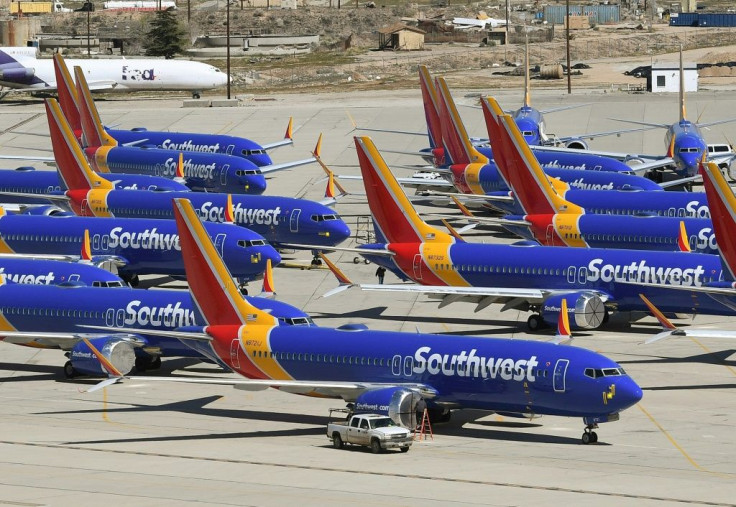B737 Max Return To Skies Catches Tailwind As Testing In Airline Flight Conditions Begins

KEY POINTS
- Boeing said it’s flight testing 737 Max planes in conditions in which airlines operate
- 737 Max planes were grounded in March last year after 2 crashes in 5 months
- Federal authorities hinted recertification flights beginning in weeks with prospect of mid-2020 return to skies
Boeing has begun flight-testing the grounded 737 Max plane in conditions that airlines operate expecting early recertification from the federal authorities. The plane, grounded in March last year around the world after experts linked two accidents that killed 346 people within five months to a flight software flaw, has been flying around the country for the past few days to test the upgraded software in operational conditions, a media report says.
Boeing said in a statement it was flying a 737 Max plane with new software to see how the plane functions when it is operated as part of an airline fleet. “These non-commercial test flights with a small test team on board will exercise short and long-haul flights, seeking out weather and altitude conditions that will help satisfy specific test conditions for the updated software. These are not certification flights.”
Targeting mid-year return
Federal Aviation Administration (FAA) chief Steve Dickson was quoted by a newspaper at Singapore air show as saying that he believed the 737 Max certification flights could happen in the coming weeks. Quick trials could ensure that the planes are back in operation by the middle of the year, reports say.
The flight testing is believed to be an indication that Boeing might be getting close to a critical recertification flight that could convince FAA and other regulators to unground the Max.
Federal aviation authorities across the world grounded the airplane in March 2019 after two Max crashed in similar circumstances within five months. There were about 350 Max planes in service at the time of the ban.
The crash of a Kenya-bound Ethiopian airline flight after signaling distress to air controllers six minutes after takeoff from Addis Ababa spurred suspicion because Indonesian Lion Air’s Max plane had also signaled distress before going down soon after takeoff from Bali five months earlier.
Primary factor in crashes
Investigations determined that the plane’s flight-control software known as MCAS designed to keep the plane from stalling was a primary factor in both crashes. In both cases, there was evidence the pilots struggled to keep the planes’ nose up after they turned down early in the flight.
Subsequent weeks saw several damning evidence emerged from internal Boeing communications that showed at least some engineers had not been convinced of the aircraft’s airworthiness. There were also suggestions of inadequate pilot training and even attempts to keep some facts from the flight crew, media reports showed.
Boeing engineers have since been working to fix the MCAS software and to modify pilot training and procedures so flight crews are prepared to fly the 737 Max.
Last week Boeing reported failure to snag any new plane booking in January, a first in a long time for the company, a CNBC report said. Meanwhile, the American plane maker’s transatlantic rival Airbus celebrated the month with about 275 orders, a report in Investors Business Daily said.
© Copyright IBTimes 2024. All rights reserved.




















